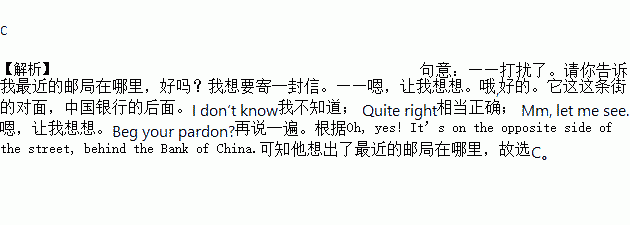题目内容
—Excuse me. Could you please tell me where the nearest post office is? I want to post a letter.
—_______Oh, yes! It’s on the opposite side of the street, behind the Bank of China.
A. I don’t know. B. Quite right. C. Mm, let me see. D. Beg your pardon?
练习册系列答案
相关题目

